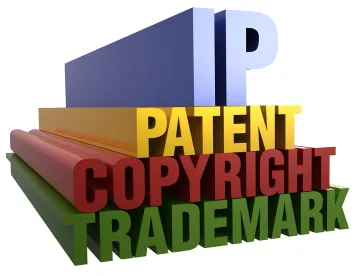Did your company at one time obtain a trademark registration covering goods that can now be considered “old technology,” such as music cassettes, VHS tapes, or floppy discs? And now that your company has moved on to newer technology, such as downloadable music files, pre-recorded DVDs, or online software, you’re afraid that your long-standing registration may be in jeopardy? Rest assured, the United States Patent and Trademark Office (“PTO”) recently announced a pilot program, which under certain circumstances allows amendments to identifications of goods or services that would otherwise be beyond the scope of the current identification.
 In the U.S., marks must be used in commerce on covered goods and services in order for a federal registration for the mark to be maintained. Specifically, trademark owners must file a declaration that they are using the mark in connection with all of the goods or services listed in the registration, along with a specimen of the use, between the fifth and sixth year after registration, and every ten years after registration. If the mark is not used on any of the goods and services, then those specific goods and services must be deleted from the registration. The PTO would not (prior to this pilot program) allow the goods and services to be amended beyond the scope of the registration.
In the U.S., marks must be used in commerce on covered goods and services in order for a federal registration for the mark to be maintained. Specifically, trademark owners must file a declaration that they are using the mark in connection with all of the goods or services listed in the registration, along with a specimen of the use, between the fifth and sixth year after registration, and every ten years after registration. If the mark is not used on any of the goods and services, then those specific goods and services must be deleted from the registration. The PTO would not (prior to this pilot program) allow the goods and services to be amended beyond the scope of the registration.
This is where trademark owners can run into problems. Technology evolves very quickly, and thus in a ten year span, a company may have changed the manner or medium in which products and services are provided to consumers. In the past, companies like this may have found themselves out of luck when facing the renewal of a registration for obsolete technology, in which case they would be forced to allow the registration to be cancelled and file a new application for the new technology. Not only is this practice costly, it can cause the company to lose the protection granted by its long-standing registrations.
As of September 1, 2015, the PTO commenced a pilot program to allow, under limited circumstances, amendments to identifications of goods or services in trademark registrations that would otherwise be beyond the scope of the current identification. Specifically:
Amendments will be permitted where they are deemed necessary because evolving technology has changed the manner or medium by which the underlying content or subject matter of the identified products and services are offered for sale or provided to consumers.
While the pilot program does allow amendments that are beyond the scope of the current identification, this broadening effect is not unlimited. Registrations can only be amended in cases where the trademark owner can no longer show use on the goods or services in their original form due to evolving technology – this program cannot be used to add new technology when the mark is still used on the original goods or services (that would be too good to be true!). Also, the mark still must be used on goods and services that reflect the same underlying content or subject matter – this program cannot be used to add entirely new goods and services.
This program also has other important limitations. Notably, the program is only applicable to registrations – this type of amendment will not be permitted prior to registration. Additionally, any “incontestable” status that applied the the original goods and services will not just carry over to the amended identification. On the contrary, the trademark owner must declare it will not file a declaration of incontestability as to the evolved goods and services for at least five years after the acceptance of the amendment.
Finally, the PTO will take steps to consider any possible third-party harm that may result from the amendments. Specifically, the PTO will perform a new search of PTO records prior to entering the amendment, and will thereafter publish proposed amendments in the Official Gazette. Interested parties will then have thirty (30) days to submit any comments, which will factor into assessing the third-party harm aspect of the amendment.
Are you wondering what types of amendments might be accepted? The PTO has kindly offered some examples of acceptable amendments:
|
Original identification |
Amended identification |
|
Phonograph records featuring music (class 9) |
Musical sound recordings (class 9) |
|
Floppy discs for computers for word processing (class 9) |
Providing on-line non-downloadable software for word processing (class 42) |
|
Downloadable software for use in database management (class 9) |
Software as a service (SAAS) services featuring software for use in database management (class 42) |
|
Printed books in the field of art history (class 16) |
Downloadable electronic books in the field of art history (class 9) |
|
Telephone banking services (class 36) |
On-line banking services (class 36) |
|
Entertainment services, namely, an ongoing comedy series provided through cable television (class 41) |
Entertainment services, namely, an ongoing comedy series broadcast via the Internet (class 41) |
This pilot program demonstrates the efforts made by the PTO to respond to user comments and accommodate changes required by the rapidly evolving technology that is present the world today. The duration of the pilot program will depend on the volume of requests. Accordingly, trademark owners may wish to review their trademark portfolio to determine if they should take advantage of this program, sooner rather than later.




 />i
/>i

